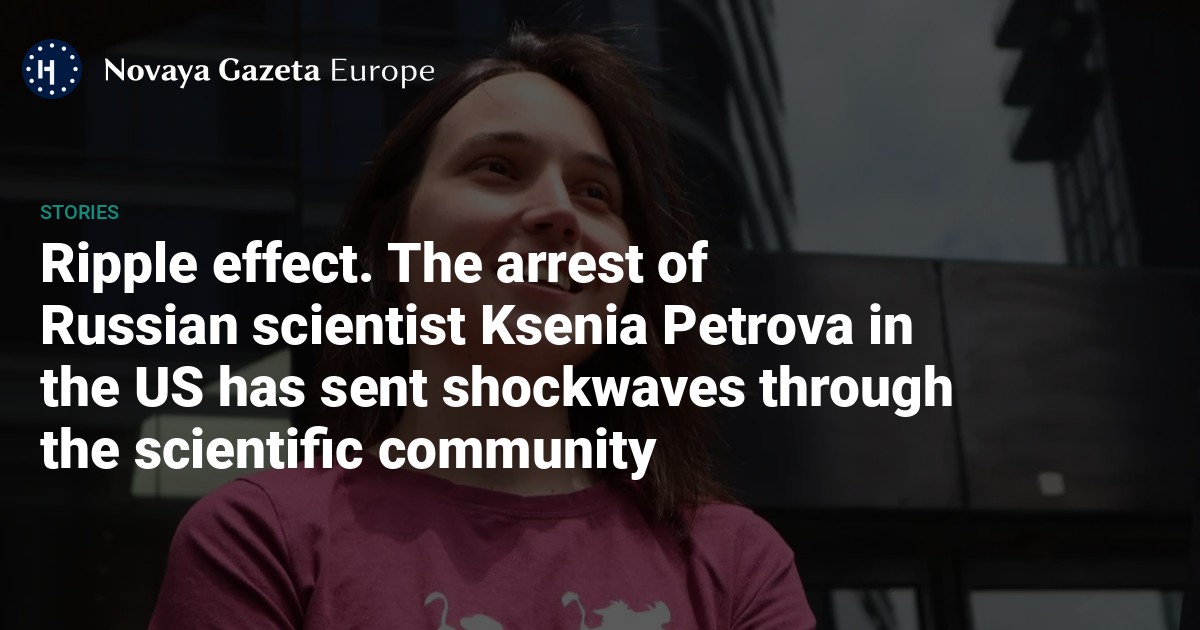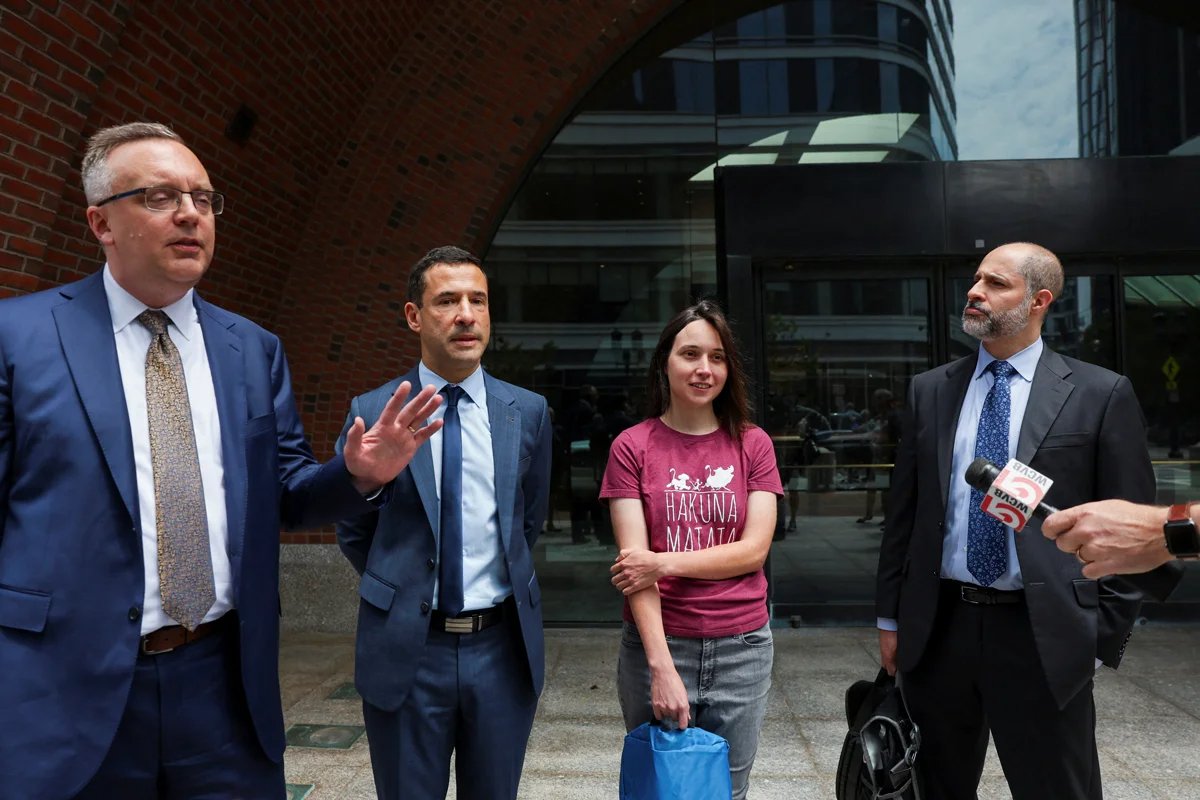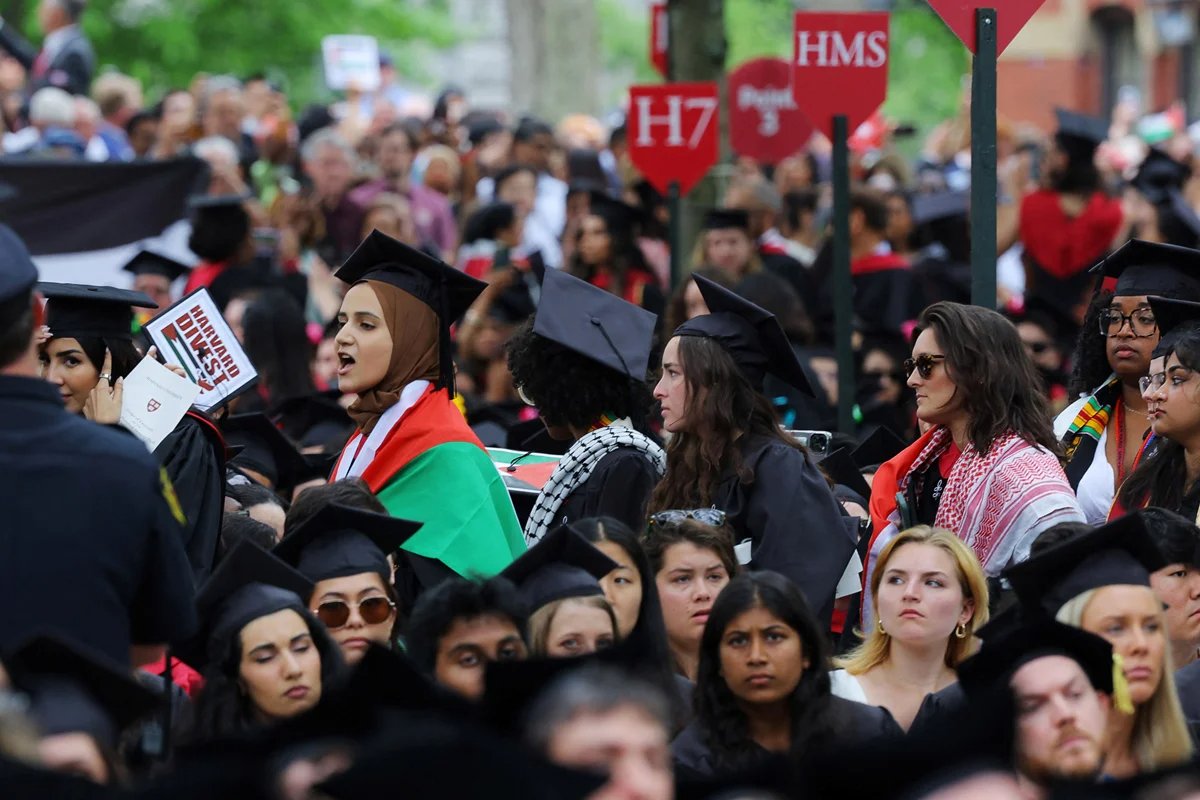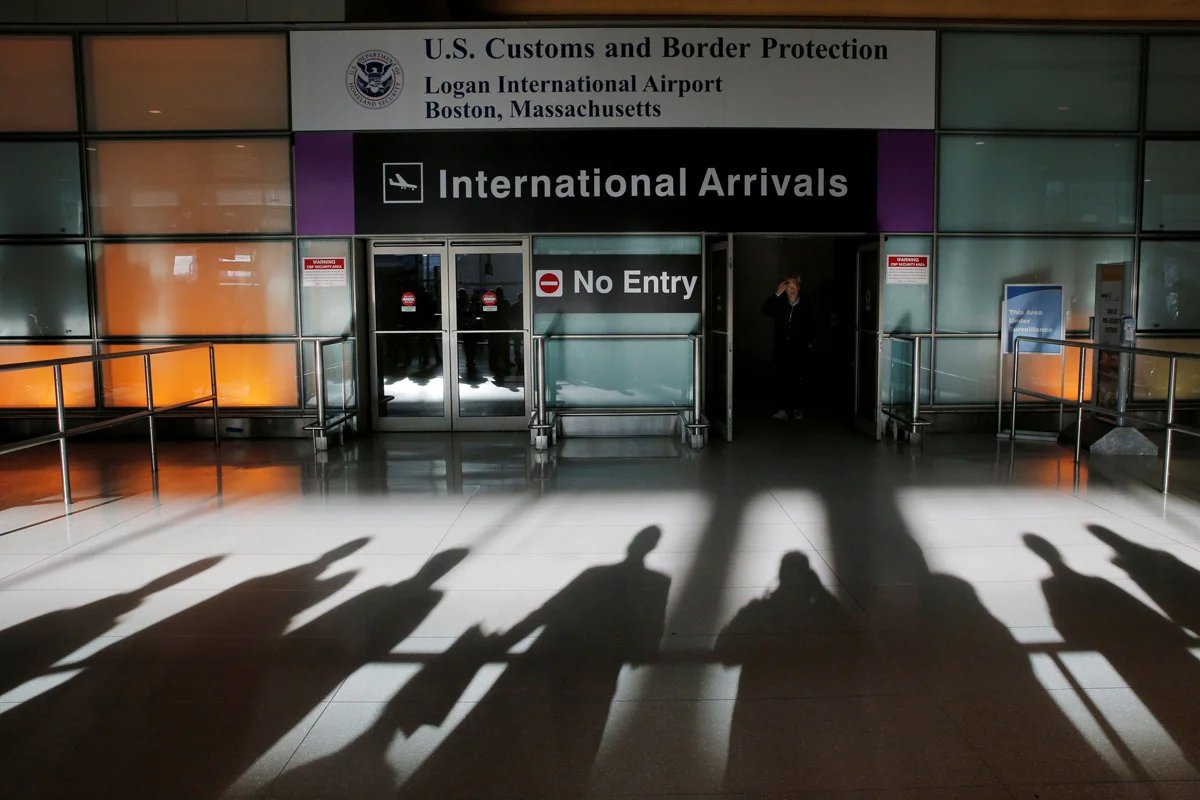



Ksenia Petrova, a 31-year-old Russian scientist, faces a potential prison sentence of 20 years for taking a box of frog embryo samples into the country. Petrova was returning from a vacation in France when US agents arrested her for failing to declare the samples. She has been indicted by a federal grand jury on three criminal counts, including criminal smuggling and making false statements.
Petrova fled Russia after protesting the war in Ukraine in 2022, to pursue her dream of being a scientist. If she were to be deported to Russia, as President Donald Trump’s administration has threatened to do, Petrova says her life would be in danger.
The case has rattled foreign scientists in the US. Many are now afraid to carry research samples from abroad and some are wiping their phones at the border, fearful that an innocent mistake might result in criminal charges, or worse.
Before moving to the US, Petrova studied in Moscow. A close friend of Petrova’s family told The New York Times (NYT) that she was a “passionate scientist” and “one of those people who are truly interested in obtaining new knowledge”. Even on vacation, the family friend recalled, Petrova brought her laptop with her to meals to work.
At the onset of Russia’s full-scale invasion of Ukraine in 2022, Petrova joined the street protests in Moscow. She was also openly critical on social media, posting multiple links online to anti-war videos and a petition calling on Vladimir Putin to resign. She left Russia that year, she told the NYT, because she knew that if she wanted to be a scientist, she had to leave.
“I think in each country, scientists are opposed to autocratic government,” she said.
Petrova brought her highly sought-after skills in biology and computer science to Harvard Medical School, where her research focused on cell development and fighting the effects of cellular damage due to ageing.

Petrova and her lawyers outside court, Boston, 12 June 2025. Photo: Leah Willingham / AP Photo / Scanpix / LETA
On 16 February, Petrova flew into Boston’s Logan International Airport. Upon her arrival, Customs and Border Protection officers pulled her aside into a secondary screening area. They found a box with clawed frogs’ embryos in her bag, which she had not declared. She had brought the samples at the request of her boss, Leon Peshkin.
Peshkin collaborates with a laboratory in Paris, where scientists have developed a method for obtaining ultra-thin slices of frog embryos, using a method the Harvard researchers hadn’t mastered; obtaining the samples, Peshkin told the NYT, would significantly speed up their work. Speaking with Novaya Europe, Peshkin said that the Paris laboratory’s method had not been published in any scientific journal. Their French colleagues had tried to mail samples of embryos on multiple occasions, but they had thawed out en route and were then too damaged to be of any use.
American investigators say Petrova failed to disclose the embryos and had lied to investigators about it. Later, Petrova admitted to her mistake and said that she didn’t know whether they had to be declared. The criminal case against Petrova is largely based on text messages that a customs officer found on her phone.
Petrova made clear that she would face imprisonment if she returned to Russia.
According to the US Department of Justice, the correspondence shows that Petrova had discussed whether or not to declare the embryos with a colleague. The colleague told her that the embryos had to be declared. Petrova’s colleague asked her how she expected to get through customs, and, according to court records, she joked: “No plan yet. I won’t be able to swallow them.”
Petrova is facing up to 20 years in prison. Already, US Immigration and Customs Enforcement (ICE) revoked her visa and initiated deportation proceedings against her. Petrova made clear that she would face imprisonment if she returned to Russia.
But ICE continued shuffling Petrova through the US detention system — first in Vermont and then in Louisiana, where she was held alongside about 90 other detainees, most of them undocumented immigrants from Central and South America. As Petrova awaited her hearings, she read books on evolution, cell development, and meiosis.
In June, after almost four months in ICE custody, Petrova was released on bail. Two weeks later, a federal grand jury in Boston indicted her with one count of concealment of a material fact and one count of false statement. If found guilty of those charges, she could face an additional five years in prison. Petrova is now awaiting trial in Boston.
Novaya Europe spoke to Petrova’s lawyer Grigory Romanovsky, who believes the charges are tinged by politics.
“Smuggling usually means a person has either knowingly imported a proscribed item, such as drugs, or has tried to evade customs duties. Neither applies in Ksenia’s case. Even if we accept that she technically violated the rules by not declaring research samples, the maximum penalty should be a fine similar to one you’d get for not declaring an apple in your luggage. Launching a criminal case several months later, immediately after a federal court admitted that the customs officer had acted improperly, doesn’t make sense,” he said.
Allegations that Petrova transported frog embryos to the US are misleading, the biotechnologist and virologist Michael West, who testified in Petrova’s defence in court, told Novaya Europe.
“In the same way shoe leather shouldn’t be labelled a ‘cow’ and a paperback book shouldn’t be considered a ‘tree’, the samples Ms Petrova was bringing to Harvard for critically important medical research clearly in the interest of the people of the US and indeed the world, were inert, chemically inactivated samples, properly prepared to be safely transported and viewed on microscope slides in an effort to discover causes of ageing and age-related disease,” he said.
The smuggling charge does not withstand scrutiny, West’s colleague, Professor Lev Yampolsky, who attended the preliminary hearing in Petrova’s case, agrees. “Smuggling entails either an intention to sell the goods, which wasn’t the case here, or bringing in a product that requires a special permit. But no federal agency regulating the import of biomaterials requires permission for anyone to import frog embryos,” he told Novaya Europe.
With even serious declaration errors, the punishment is usually a fine of about $500 (€430).

Harvard graduates leave a graduation ceremony in support of students who were unable to graduate due to participating in pro-Palestinian protests, Cambridge, Massachusetts, 23 May 2024. Photo: Brian Snyder / Reuters / Scanpix / LETA
The Trump administration has exerted significant pressure on American universities in recent months. The government has made extraordinary demands of Harvard that go against the university’s commitment to academic independence. The Trump administration wants Harvard to implement reforms, supposedly aimed at combating anti-Semitism, under government supervision and it wants to change Harvard’s admissions policy. The university has resisted, and stands to lose over $2 billion (€1.7 billion) in government funding.
Yampolsky believes the case against Petrova is just another way to exert pressure on Harvard.
“Ksenia’s case fits clearly into a more global crusade against universities and science, which is already leading to an outflow of talent from the US.”
“I don’t know if this is due to the open warfare between the Trump administration and Harvard. Petrova was detained in February, before that conflict was public. Perhaps customs officials had received instructions to inspect the luggage of Harvard employees? It could be a coincidence, but I am personally in no doubt that it’s all connected,” he said.
The withholding of federal grants will cripple the university’s medical research, which is a global hub of innovation. West said that such a loss was unjustifiable, because delays in research and development would almost certainly lead to unnecessary human suffering and death. Romanovsky believes the Trump administration’s aggressive stance is most likely connected with a broader war against Harvard and the scientific community as a whole.
“Ksenia’s case fits clearly into a more global crusade against universities and science, which is already leading to an outflow of talent from the US,” he said.

The arrivals area at Logan International Airport, Boston, Massachusetts, 30 January 2017. Photo: Brian Snyder / Reuters / Scanpix / LETA
The news of Petrova’s case has caused alarm amongst the vast community of overseas scientists living in the US. Panic and fear of persecution are widespread.
Work at the Harvard laboratory has stalled, Peshkin told the NYT. He says that when he asked colleagues to support Petrova, many admitted that they were afraid to, because they are also in the country on temporary visas.
Yampolsky said that scientists have always brought biological materials into the US: sometimes it requires permission and sometimes it doesn’t. But “now, of course, no one will,” he said. He had not heard of cases of people’s phones being checked at the border, let alone criminal cases being opened on the basis of what they found.
“There should be anger that the US is ignorant of the role people such as Ksenia Petrova play in building a better tomorrow.”
“It’s like Russia. But that never used to happen in America! Even if customs officers do have the right to inspect a device and the files on it, they don’t,” Yampolsky said. Now, “many people, especially non-US citizens, thoroughly wipe their phones before entering the country,” he said.
Prosecuting Petrova goes against the interests of the American people, West told Novaya Europe, calling it “foolish and shameful to imprison young medical researchers aspiring to conquer some of the most devastating of human diseases”.
In the US, immigrants have been integral to the country’s scientific and technological innovation; many have received Nobel Prizes for their work, West noted.
“Just as there would have been outrage at the imprisonment of Albert Einstein,” West said, “there should be anger that the US is ignorant of the role people such as Ksenia Petrova play in building a better tomorrow.”
The Russian government has banned independent media. We were forced to leave our country in order to keep doing our job, telling our readers about what is going on Russia, Ukraine and Europe.
We will continue fighting against warfare and dictatorship. We believe that freedom of speech is the most efficient antidote against tyranny. Support us financially to help us fight for peace and freedom.
By clicking the Support button, you agree to the processing of your personal data.
To cancel a regular donation, please write to [email protected]
VPNovaya
Help Russians and Belarusians Access the Truth
